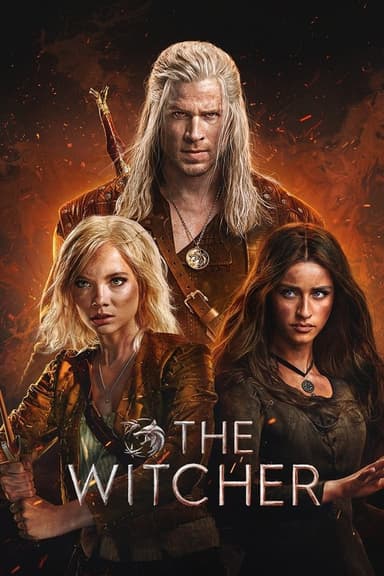
The Water Magician
2025 • Action & Adventure, Animation, Sci-Fi & Fantasy • TV-14
Reincarnation had Ryo dreaming of peace, but instead he lands into a monster-infested wilderness. With water magic and eternal youth, he survives countless wicked concoctions for 20 years, becoming one of the most powerful magicians ever. Ryo’s fate shifts when he meets Abel, a genius knight, thrusting him into magical society’s spotlight. Thus, the Water Magician’s wild adventure begins!
Why you should read the novel
Immerse yourself in the literary masterpiece, The Water Magician by Kyoka Izumi, before watching the TV series adaptation. Delve into the original text to experience the poetic nuances, cultural layers, and subtle symbolism that only the novel offers. By reading the source novel, you will gain a richer understanding of the characters’ motivations, the historical backdrop of early 20th-century Japan, and the unique blend of realism and fantasy carefully woven by Kyoka Izumi.
The TV adaptation may reel you in with striking visuals and performances, but the novel allows you to deeply connect with the characters on a personal level. The written narrative provides inner monologues and emotional subtleties that cannot be fully rendered on screen. As a reader, you'll find yourself fully invested in the tragic romance and the protagonist’s poignant journey of love, sacrifice, and redemption.
Exploring The Water Magician in its original literary form offers a fresh perspective and emotional resonance that enhances your appreciation for both the book and the TV series. Reading before watching will enrich your understanding, give you access to the author's intended themes, and provide context for the creative choices made in the television adaptation. Discover why Kyoka Izumi’s work has captivated generations of readers worldwide.
Adaptation differences
While the 2025 TV series The Water Magician brings Kyoka Izumi’s story to the screen with new energy, there are notable differences from the original novel. The series expands certain subplots and secondary characters, giving them more presence and dialogue than in the source material. This change allows for ensemble storytelling but shifts some focus away from the central tragic romance that defines the book.
Another key difference lies in the timeline and setting. The adaptation updates certain historical aspects to resonate with modern audiences, occasionally blending anachronistic elements for dramatic effect. These creative liberties may alter the authentic atmosphere of Taisho-era Japan, a detail that Izumi meticulously crafted. The fantastical elements are also emphasized in the TV series, with visual effects highlighting supernatural motifs that in the novel remain more mysterious and understated.
Characterization experiences a shift in the adaptation, especially regarding the protagonist's motivations and moral ambiguities. The book presents their struggles in nuanced, introspective terms, while the television version opts for clearer emotional beats and externalized conflicts. This change can affect the emotional depth experienced by audiences, making the TV series accessible but potentially less profound in psychological insight.
Lastly, the ending of The Water Magician TV series diverges from the novel, offering a more hopeful or ambiguous resolution compared to the book’s original outcome. This alteration changes the tone and takeaway message for viewers, making the experience different for those who have read the novel. For purists and fans of the source material, exploring both the book and its adaptation reveals how different mediums interpret, enhance, or transform a beloved story.
The Water Magician inspired from
The Water Magician
by Kyoka Izumi







